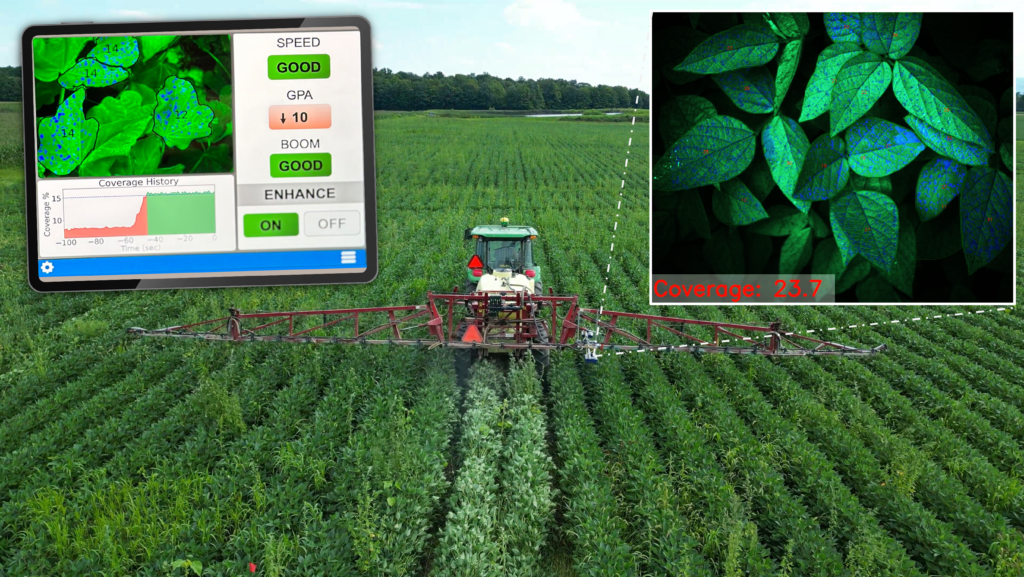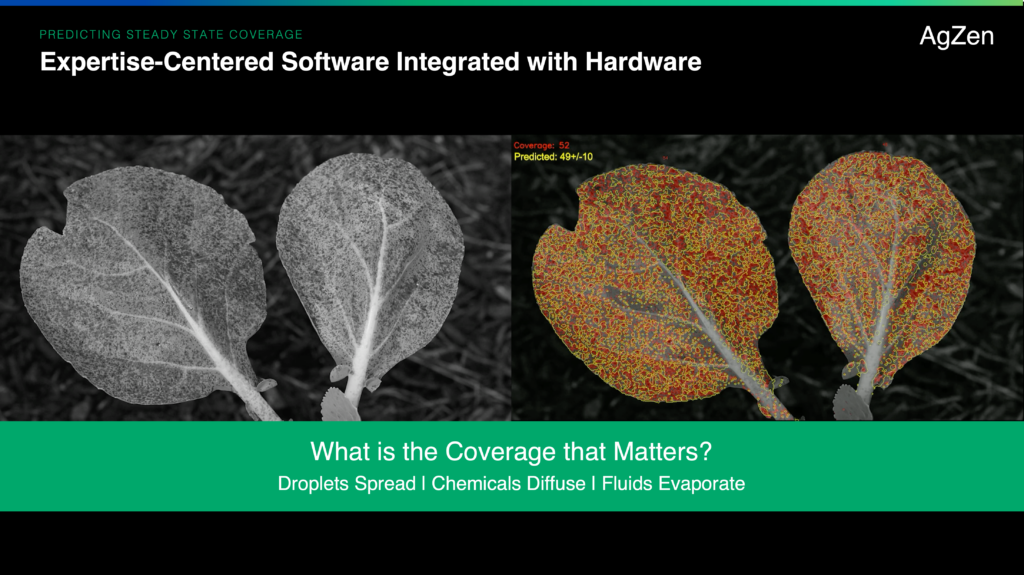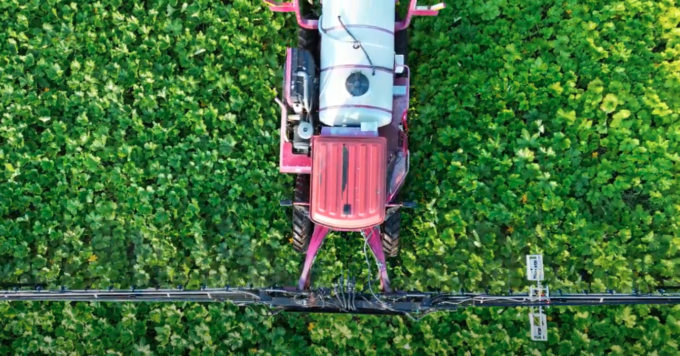There’s a saying for when you’re relying on a high output volume and luck to reach a target: “spray and pray.” And for the agricultural industry, that’s been the literal approach for pesticide application.
“We’ve been spraying synthetic chemicals on plants for nearly 80 years, but no one has quantified how much of these chemicals actually end up on the plants—not the chemical companies, not the growers, not the equipment companies, no one,” says Vishnu Jayaprakash, CEO and Co-founder of AgZen, a Greentown Labs startup. “So we built a product that, for the first time, tells you while you’re driving how much of the product is on the plants, and we built in feedback control so that you can optimize your spray in real-time.”
AgZen’s feedback-optimized spray system, RealCoverage, uses AI to provide insights into how to reduce the amount of chemicals that farmers need to spray to achieve the desired coverage on their plants—saving growers significant money and water while decreasing pesticides’ environmental impact. AgZen says its technology can cut pesticide use by 30 to 50 percent by pulling levers related to machine, chemical, and nozzle parameters; weather conditions; and plants’ ages.

What’s the climate impact of cutting pesticide use in half? Today, 41 percent of U.S. aquifers contain a detectable level of pesticides, and pesticide pollution is associated with up to hundreds of millions of acute illnesses annually. In addition to these environmental and health concerns, pesticide use is also quite expensive—growers spend roughly $60B on pesticides annually, and these chemicals can account for up to 30 percent of some crops’ production costs, according to Jayaprakash.
AgZen is focusing initially on row crops such as soybeans, cotton, and corn because of their high acreage in the United States, and is working with growers, co-ops, and retailers. RealCoverage can be retrofitted onto all existing sprayers, and AgZen has already leased units to optimize sprays on more than 37,000 acres in 2024.
The startup, an MIT spinout, plans to offer additional products in the future that advance its mission of making pesticide spraying more efficient, including EnhanceCoverage—a nozzle that makes pesticides stick to plants more effectively.
“We create value for everyone in agriculture,” Jayaprakash says. “We can help equipment companies make better equipment, we can help chemical companies make better chemicals, we can help growers with their profitability, and we can help researchers figure out new ways to spray more efficiently.”

The 10-person, seed-funded startup is coming off a momentous 2023, where it conducted 12 major pilots. Its focus for 2024 is scaling up, according to Jayaprakash—including leasing its technology commercially on thousands of acres, running a project with the U.S. Department of Agriculture to quantify how different farm practices can decrease watershed pollution, and raising a Series A. AgZen is also in discussions with various chemical and original equipment manufacturer (OEM) companies about partnerships.
The startup is hard at work in Greentown’s prototyping lab, as well, where it’s created an indoor track that simulates sprays in the field at up to 16 miles per hour. The AgZen team uses this model to unlock further insights related to its tech and to develop additional features and products.
“Being able to make a scaled-down version of a sprayer in the lab has been awesome for us,” Jayaprakash says. “That lab space at Greentown has helped us tremendously in terms of being able to prototype and access expertise on machining to help develop our products.”


